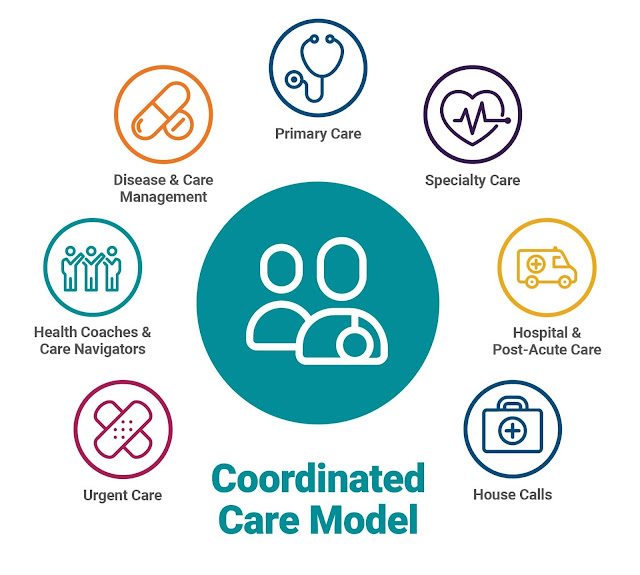Care coordination has the
potential to enhance the effectiveness, safety, and performance of the American
health care system. Care coordination approaches encompass teamwork, care
management, medication management, patient-centered medical home. Well-designed
care coordination that is delivered to the right people can result in great
outcomes for patients and providers alike.
The benefits of care coordination programs in New York City are
manifold:
Though care coordination benefits
and models differ, the core of any approach is the same, which is to identify
patients who are in dire need of more coordinated care and help in delivery of
the necessary healthcare services sequenced in the most suitable order, at the
right time, and in the proper place.
Patient Benefits- The main objective of
care coordination is to meet patients' needs and preferences in the delivery of
high-grade, high-value health care. Some models of care
coordination include a range of personalized services tailored to the needs
of each patient that yields improved health outcomes and patient experiences.
Patients also get to eliminate unnecessary appointments, procedures, tests, and
costs associated with them since the care coordination team works directly with
the patient’s healthcare team.
Provider Benefits- Continuous
communication between the patient and provider is the main focus of care
coordination that ensures access to proper information that informs progress or
possible modifications that are required to be made to the patient’s treatment
plan. Besides improved patient outcomes, continuous visibility into patient
progress and extended care team visits are some added benefits.
Benefits for Employers- Employers
should consider care coordination a prerequisite component of their health plan
strategy, which can help
maintain healthier and more productive workforces, improved cost savings,
improved employee satisfaction and productivity.
The bottom line is care coordination- when done right- hugely improves the patient’s experience of care, health
outcomes and reduce costs since improved communication between specialists and
primary care physicians to maximize treatment plan effectiveness is the
cornerstone of care coordination.
Harlem East Life Plan is a
multi-faceted outpatient facility offering co-located services of addiction
medicine, general medicine and Mental Health.
Contact Us:
Harlem East Life Plan
Full Address:
2367-69 Second Avenue New York,
NY 10035
Telephone: 212-876-2300





